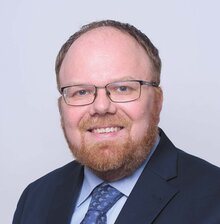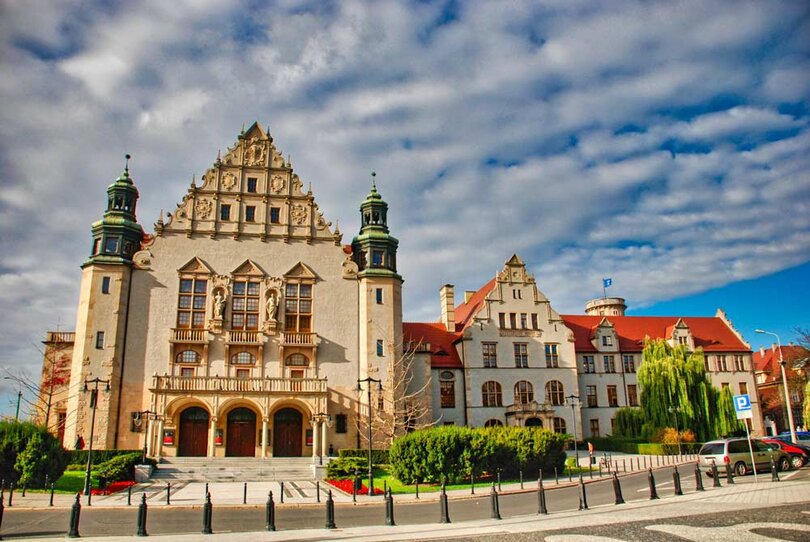By Moritz Botts
Poznań, Frankfurt an der Oder and Istanbul

Dr Moritz Botts has been a DAAD long-term lecturer in marketing at the Turkish-German University in Istanbul since February 2022. During his teaching career in Germany, he held a teaching position at the German Jordanian University and worked as an intercultural trainer.

Moritz Botts completed an Erasmus semester at Poznań University of Economics and Business in Poland.
After finishing the preliminary part of my degree in economics in 2003, I discovered the subjects I wanted to specialise in – international marketing and management – at the beginning of 2005 and then I wanted to spend a semester abroad. There were a few partner universities in western Europe, but I either didn’t speak the language of instruction or had already visited them extensively when I was at school. Then I discovered that Poznań University of Economics and Business offered courses in English that matched my study profile exactly.
Studying in Poland
I attended a 1-month Erasmus-funded intensive language course in Lublin, in the east of the country. During this time, I became fascinated by Central and Eastern European culture, and I soon realised I wanted to stay in academia and pursue further academic studies. Perhaps I should take this opportunity to apologise to my fellow students in Germany, whom I probably infuriated with my enthusiasm for this subject!
Life in Poland was pretty similar to life in Germany. In my experience, however, the most striking difference, aside from the language, is the way people communicate. In Poland, it’s common to express things more indirectly – in a more roundabout way – than in Germany. This and other cultural differences changed me significantly. I learned to deal with uncertainties, because many aspects of life were unfamiliar and not always immediately comprehensible to me. Living abroad also made me more adventurous.
I found myself returning to Poland frequently, so I ended up pursuing a doctorate in international management in Frankfurt an der Oder, on the Polish-German border. Fittingly, my PhD research was on the impact of international experiences on the development of future managers!
SMS Participants’ Satisfaction (all clusters)
Responses for 2020 in percent, N = 232,230

Next stop Turkey
Due to various circumstances, I was offered a teaching position at the Turkish-German University in Istanbul during this time. In 2022, my wife and I decided to move to the city on the Bosphorus for several years. Our daughter wasn’t at school at that point, so the timing was good. I now teach marketing at Bachelor’s level in German and the part-time Master’s and doctoral programmes in English.
I have since taken on the role of Erasmus representative for the Faculty of Economic and Administrative Sciences. I actively encourage all of my students to go abroad as early as possible. It not only improves their foreign language skills, but also provides them with a wealth of experiences that greatly benefit their future studies and professional lives. There’s a significant difference between merely learning about typical German self-organisation at university and actually experiencing the challenges of having to put together your own course schedule.
The importance of Erasmus for study and work
When it comes to Erasmus, it’s worth remembering that Poland was once in a similar position to that of Turkey now – namely as an EU accession candidate. In 2005, Poland was not yet part of the Schengen area either. This meant that the Erasmus programme was one of the few opportunities Polish students had to study abroad, much like it is for Turkish students today.
After 1990, Polish society clearly gravitated towards the West. In Turkey, this orientation seems more ambivalent. At the Turkish-German University, however, there is a distinct focus on Germany, because German is the language of instruction and the majority of partnerships are with German universities.
The Erasmus programme, of course, plays a crucial role in facilitating mobilities. Popular university locations are well-known among students, and nowadays I’m rarely asked questions like «Should I go to Münster, or should I go to Würzburg?». One problem for Turkish students is having to adjust to a less structured academic environment, because universities in Turkey are usually more regimented than in Germany. But this experience is also valuable for their later professional lives, especially if they work in international companies or organisations.
Moritz Botts studied in Poland with Erasmus in 2005/2006.